Kitty and Dante DiFrancesco have danced together for decades.
On a warm July afternoon, the Stoney Creek couple swirl around an air-conditioned room at Chartwell Deerview Crossing Retirement Residence, on Rymal Road.
They glide as Aidan Purnell strums his guitar and croons Anne Murray’s “Could I Have This Dance?” They’re joined by more than a half-dozen couples. A few dancers lean from their partners to chat with each other the way teenagers do at school dances. Some sing along. Others just enjoy the music.
This is Minds in Motion, a 12-week program offered by the Alzheimer Society of Hamilton Halton.
“I enjoy the dancing,” Dante DiFrancesco said. “We used to dance Fridays and Saturdays.”
The DiFrancescos, who will be married 56 years in September and have three grown sons, discovered Minds in Motion three years ago and continue coming for physical and brain-fit exercises and companionship.
“We’ve made some good friendships, which is nice because they’re in the same boat as you,” Kitty DiFrancesco Wsaid. “You do lose some of your friends who don’t have Alzheimer’s. They’re not around as much. As Alzheimer’s progresses, the person (affected) isn’t as interested in what’s going on. Friends try, but you see others pulling away.”
Minds in Motion is a free program for people with early to midstage dementia and their caregivers. Each session features 45 to 60 minutes of physical activity that participants can do while seated, with a focus on strength, endurance and flexibility. Afterward is a 60-minute brain-fit program that’s social in nature and fun. Some of these activities include discussion games that get participants to read, which stimulates the brain, and interact with each other. For instance, they might pull a piece of paper from a jar and read the question, “If you won $1 million, what would you buy?” or “If you could travel anywhere in the world, where would you go?” and then have a discussion. They also play card games such as Uno, musical bingo, Jenga and dominoes. Once a month, Purnell leads the group in a music session.
Participant Vera Austin, a Hamilton resident, said she feels fortunate to have the program.
“Once you come, you have to come. There’s no getting away from it,” said the mother of two adult daughters. “I think it’s very good and fun. I look forward to coming. I encourage anybody to come along.”
“It’s something to look forward to. It’s an outing for both of us,” she said. “He’s enjoying it too because I go as well. The support’s been wonderful. There are people who have been through what we’re going through now and you can talk to them.”
The program was launched in February 2014 with funding from the Local Integrated Health Network for several reasons, said Karen Robins, Alzheimer Society of Hamilton Halton public education co-ordinator and team lead of education.
“The most important was that more research is showing how important physical activity is to the brain. The challenge with the early stages of dementia is that people are well enough to go to a YMCA or a seniors centre but it’s a challenge to go to these places because there are risks,” she said.
According to the Alzheimer Society, 564,000 Canadians live with dementia and that figure is expected to balloon to 937,000 by 2031. And it’s costly. By 2031, Canadians will spend $16.6 billion annually to care for those living with dementia.
A recent article published in the British journal “Lancet,” suggests Alzheimer’s could potentially be delayed or staved off if people, among other things, remain physically fit and socially engaged in old age. Next year, researchers will begin a $20-million US study to see if simple day-to-day activities might help older adults stay sharp.
Minds in Motion was initially run out of the society’s Upper Ottawa Street office twice a week for a handful of couples. Now, at Deerview, a dozen regulars attend Tuesday mornings while the afternoon session is double that.
Robins said the program gives patients and their caregivers something positive to do together in a safe space.
“It also gives the caregiver a place to relax. They’re not on their guard. We’ve all come here for the same reason,” she said.
“With dementia, social isolation is part of what happens for a variety of reasons. It’s important for people to get out of the house and meet other people. And sometimes, magic happens and now they have someone on their team as they go on this journey. There’s someone you can call at 7 p.m. and say, ‘I’ve just had a bad day.’ That’s what I love hearing about.”
The Alzheimer’s Society of Hamilton Halton also runs Creative Expressions, another two-hour weekly program for those with early to midstage dementia and their caregivers. In the first hour, an art therapist leads participants in an art appreciation discussion. In the second, participants work on a piece of art.
“If you have a belly button, you have an opinion,” Robins said. “It’s not about the art work. The art work gets the juices flowing. I’ve had caregivers say to me that their spouses don’t speak much. But at the session, they’ll say they haven’t heard them say so much in a long time. And that’s a beautiful thing.”
*Article originally in The Hamilton Spectator




